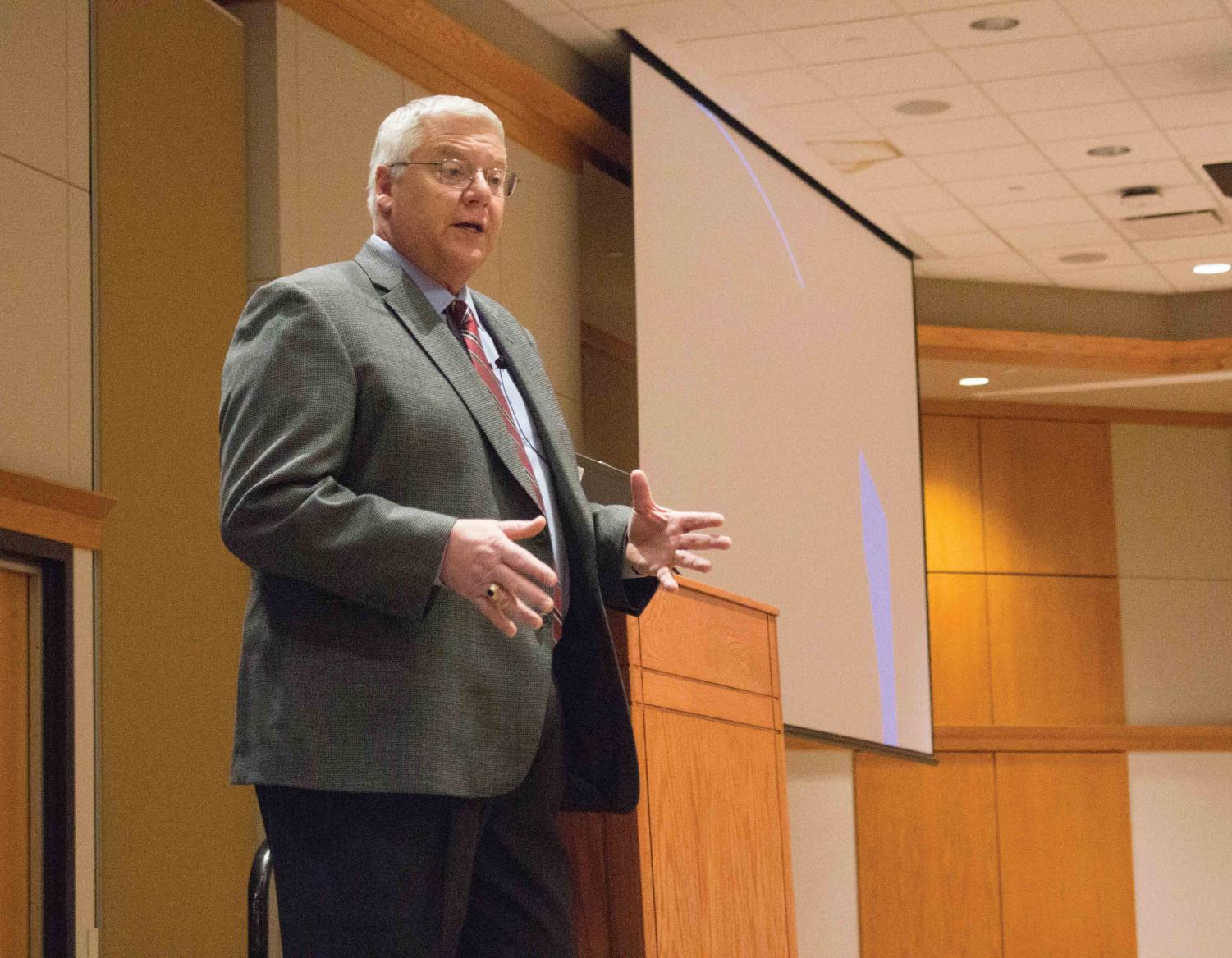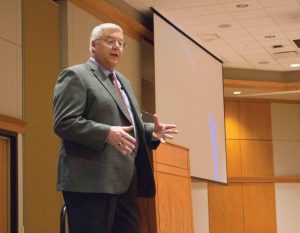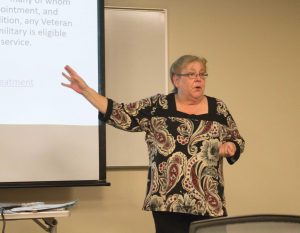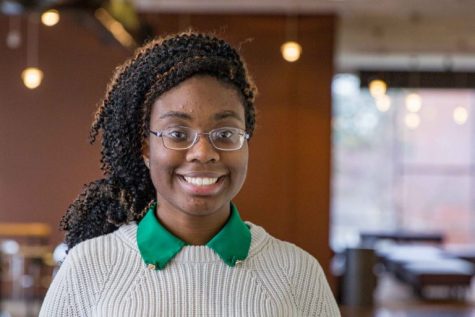UNI welcomes Statewide PTSD conference
Mar 14, 2019
From something as life-altering as war to as simple as stubbing your toe, post-traumatic stress disorder (PTSD) can affect people’s day-to-day lives.
The UNI Veterans Association (UNIVA) hopes to clear up misconceptions while providing hope and support to those who are struggling during the Third Annual Statewide PTSD Conference that will be held from 8 a.m. to 3 p.m. on Wednesday, March 27 in the Maucker Union.
“Diagnosis is hard to explain,” said Cole Passick, the UNI Veterans Association president who is majoring in political science and public administration. “It comes from traumatic events that happen in life. Usually it refers to the military, however, it doesn’t only originate from military experiences. It can go with rapes, car accidents or something as small as stubbing your toe and then not going near the bedpost again because of the pain you felt.”
This keynote speaker scheduled for the conference is Matthew Vasquez, a UNI professor of social work who will be speaking about vicarious trauma.
According to Passick, an example of this type of trauma could involve a dispatcher who often hears about suicides or accidents. While they didn’t experience these things directly, the situations that they are exposed to can be overwhelming. Through various speakers and breakout sessions, Passick hopes that the conference can explain the road to recovery and give back to local Iowans.
“We talk a lot about PTSD recovery and maintenance,” Passick said. “You can’t just get a shot of penicillin and you’re done. It’s something that you have to work on continuously. Sometimes you have setbacks, and sometimes you have good weeks and you have bad weeks.”
Passick wants this year’s event to shine a spotlight on Iowans within rural communities. Many small towns have volunteer firefighters who work in a department with a small budget and staff. Because of that, they may not have the funds to get a psychological evaluation. Due to these constraints, the event will have a specific focus on first responders, police and others who help people.
“It’s something that you don’t always see or feel,” Passick said. “A lot of people will say ‘that’s not me.’ I was the same way. But once you have someone break it down for you and you get some of the information at these sessions, it can change lives. For everyone that comes in off the street, it’s an informational period that can help someone else’s life.”
UNIVA is an on-campus group of military, veterans and non-military veteran students. Every year they host events to support veterans such as the Military Ball and “Write a Card, Thank a Vet,” which is an opportunity for UNI students to write thank-you cards and send them overseas to bases and nursing homes. They also provide Green Zone Training to faculty and staff, which helps them learn about the behaviors of military students.
Overall, Passick is looking forward to helping people out at the event.
“The whole point of this conference is to bring people together,” Passick said. “Maybe there are people from North Iowa and people from South Iowa and they meet in one of the breakout sessions. That’s one connection that they would have never made. The biggest thing here is to push connections and push awareness for PTSD as a disorder.”
General admission for the conference is $10, but the event is free to all UNI students. Those who wish to get a Continuing Education Unit may do so for an additional $10. Lunch will be served, and the event will feature a community panel of first responders.
Those interested in the event can sign up at military.uni.edu/ptsd in order to learn about the often-unseen illness and how it affects the state of Iowa. Registration closes at 12 p.m on Friday, March 22.












